How Much Does a Water Purification System Cost?
- How Much Does a Water Purification System Cost?
- and what this guide delivers
- Quick cost overview by system type
- Point-of-use (POU) and countertop filters — low cost, fast results
- Under-sink Reverse Osmosis systems — popular for drinking water
- Whole-house systems (point-of-entry) — protect the entire home
- Commercial and industrial systems — larger footprint, higher costs
- Key factors that influence system cost
- Installation and labor — what to expect
- Ongoing maintenance and operating expenses
- Estimating lifetime cost and return on investment
- How to choose the right system — a practical checklist
- Why choose Aqualitek Water Treatment Technologies (AQT)?
- Cost-reduction tips without sacrificing performance
- Conclusion — make an informed, cost-effective choice
- Common questions (FAQ)
How Much Does a Water Purification System Cost?
and what this guide delivers
When people search How Much Does a Water Purification System Cost? they want clear, actionable numbers and guidance to compare options and make purchasing decisions. This article gives realistic cost ranges, factors that affect price, installation and maintenance expenses, and practical tips to choose a system that fits your budget and water needs.
Quick cost overview by system type
Below is a concise comparison of common system types and typical installed cost ranges. Use this to identify which category matches your needs before reading details.
| System Type | Typical Installed Cost (USD) | Common Uses | Typical Maintenance Cost / year (USD) |
|---|---|---|---|
| Countertop/Cartridge Filters (POU) | 50 - 500 | Drinking water, apartments | 20 - 100 |
| Under-sink Reverse Osmosis (3–5 stage) | 150 - 800 | Kitchen drinking water, small families | 60 - 250 |
| Whole-house Filtration / Softening | 1,000 - 10,000+ | All household water points | 100 - 600 |
| Commercial / Industrial RO & Treatment | 2,000 - several hundred thousand (or more) | Businesses, manufacturing, hospitals | Varies widely |
Point-of-use (POU) and countertop filters — low cost, fast results
POU filters include pitcher filters, faucet-mounted cartridges, and small countertop units. They are the cheapest option for improving taste, chlorine and sediment removal. Typical purchase costs range from 50 to 500 USD depending on brand and filter life. Replacement cartridges are usually 20–100 USD per year. POU systems are good if you only need clean drinking water at a single tap.
Under-sink Reverse Osmosis systems — popular for drinking water
Under-sink RO systems (3–5 stages) typically cost between 150 and 800 USD for consumer units. Higher-capacity or certified systems cost more. Installation by a plumber can add 100–400 USD. Typical annual operating costs include filter replacements and membrane replacement every 2–5 years, totaling about 60–250 USD per year. RO systems remove dissolved solids and many contaminants, making them common in homes with poor tap taste or high TDS.
Whole-house systems (point-of-entry) — protect the entire home
Whole-house systems treat water at the point it enters your home to protect plumbing, appliances, and bathing water. Costs vary widely: basic sediment and carbon systems start around 1,000 USD installed, while comprehensive solutions that include filtration, water softening, UV disinfection or advanced media can run from 2,000 to 10,000+ USD. Annual maintenance (media or resin replacement, UV lamp replacement) is usually 100–600 USD depending on system complexity.
Commercial and industrial systems — larger footprint, higher costs
Commercial and industrial treatment systems are sized to flow requirements and contaminant profiles. Small commercial RO units can start near 2,000 USD, while larger process or municipal-scale systems reach tens or hundreds of thousands of dollars. Costs depend on capacity (gallons-per-day), pretreatment (softeners, anti-scalants), post-treatment, control panels and automation. Maintenance and operating costs must be estimated case-by-case, often as ongoing service contracts.
Key factors that influence system cost
Several variables determine the final price you pay. Understanding these helps you evaluate quotes:
- Water quality: Higher contamination levels (high TDS, iron, hardness, specific contaminants) require more pretreatment and tougher systems.
- System capacity: Higher flow or family size increases system size and cost.
- Technology and certifications: RO, UV, and advanced media cost more; NSF/ANSI certifications add price but ensure verified performance.
- Installation complexity: Plumbing, electrical work, or space alterations raise labor costs.
- Brand, warranty and local service availability: Trusted brands and robust warranties often cost more upfront but lower lifecycle risk.
Installation and labor — what to expect
Installation costs are typically 100–2,000 USD depending on system complexity. Under-sink jobs are on the low end; whole-house system installation (including bypass valves, floor space preparation, and integration with softeners) is more labor-intensive and more expensive. For commercial systems, installation can require specialists and integration with plant controls.
Ongoing maintenance and operating expenses
Maintenance is a recurring cost that should factor into your purchase decision. Typical items include filter cartridges, RO membranes, UV lamps, resin/media regeneration, and periodic service checks. Annual operating costs commonly range from 60 USD for simple POU units to several hundred dollars for whole-house systems. For RO, consider water waste — many residential RO units waste 2–4 gallons for every gallon purified unless equipped with recovery pumps.
Estimating lifetime cost and return on investment
To compare options, calculate total cost of ownership (TCO): purchase + installation + maintenance over expected lifespan (usually 5–15 years). Example: a 500 USD under-sink RO, 200 USD installation, 150 USD/year maintenance over 10 years gives TCO = 500 + 200 + (150*10) = 2,200 USD. Compare that with bottled water costs if relevant — a family buying bottled drinking water may spend 500–1,500 USD per year, so an RO system can pay back in a few years in many cases.
| Example Scenario | Under-sink RO (10 years) | Bottled water (10 years) |
|---|---|---|
| Upfront cost | 700 USD | 0 USD |
| Annual cost | 150 USD | 800 USD |
| Total 10-year cost | 2,200 USD | 8,000 USD |
How to choose the right system — a practical checklist
Follow these steps before purchase:
- Test your water (basic municipal reports are free; private lab tests cost more but detailed results justify system design).
- Define goals: remove taste/odor, reduce hardness, remove total dissolved solids, disinfect, or protect appliances.
- Match technology to contaminants: carbon for chlorine and VOCs, RO for dissolved salts, UV for pathogens.
- Ask for NSF/ANSI certifications and written warranties.
- Get multiple quotes with lifecycle cost estimates and maintenance plans.
Why choose Aqualitek Water Treatment Technologies (AQT)?
Aqualitek Water Treatment Technologies Co., Ltd. (AQT), headquartered in Guangzhou, China, designs and manufactures customized water treatment solutions for residential, commercial and industrial applications. With engineering expertise and a full product range — from pretreatment and core treatment units to recycling systems — AQT delivers reliable, efficient, and cost-effective systems tailored to real water conditions. AQT supports clients worldwide with technical design, factory-quality components, and after-sales service to maximize system life and reduce total cost of ownership.
Cost-reduction tips without sacrificing performance
Simple actions can reduce both upfront and long-term costs:
- Buy modular systems that let you upgrade as needs change.
- Use pretreatment (sediment/carbon) ahead of RO to extend membrane life.
- Choose local installers with service plans to avoid long-term downtime.
- Ask about energy-efficient options and fewer-waste RO designs.
- Explore financing, service contracts or bulk procurement for commercial projects.
Conclusion — make an informed, cost-effective choice
There is no one-size-fits-all price for water purification. A basic POU filter can cost under 100 USD, while whole-house or industrial systems scale from thousands to hundreds of thousands USD. The right choice depends on water quality, capacity needs, desired contaminant removal, and long-term operating costs. By testing water, comparing lifecycle costs, and choosing reputable suppliers like Aqualitek, you can secure clean, safe water at a predictable and reasonable total cost.
Common questions (FAQ)
Below are answers to frequent user questions. Each answer starts on a new line for easy reading.
How long does a typical water purification system last?A properly maintained point-of-use or under-sink system typically lasts 5–10 years; whole-house systems often last 10–15 years or longer with periodic media replacement and professional servicing.
Are there certifications I should look for?Yes. NSF/ANSI standards (such as 42, 53, 58) verify claims like chlorine reduction, contaminant reduction and RO performance. Look for these certifications on product documentation.
Can I install a system myself to save money?Simple POU devices can often be installed DIY, but under-sink RO and whole-house systems usually require plumbing and sometimes electrical work. Incorrect installation can increase long-term costs, so consider professional installation for complex systems.
How much water does an RO system waste?Traditional residential RO units can waste 2–4 gallons for every gallon produced. Newer high-efficiency RO systems or systems with permeate pumps reduce waste to under 1 gallon per gallon. Ask the supplier for recovery ratios.
Are there rebates or incentives?Some local utilities offer rebates for water-efficient appliances or whole-home water-saving systems. Availability varies by region — check local utility programs and municipal incentives.
How can Aqualitek help with choosing the right system?Aqualitek provides water testing support, custom system design, certified components and global after-sales service. We can provide lifecycle cost estimates and maintenance plans to ensure you get the most cost-effective solution for your specific water profile.
Industrial RO vs Ultrafiltration Comparison 2026
RO vs UV vs Carbon: Which Water Purification System Wins?
How to Test Well Water: Parameters, Methods, and Frequency
Granular vs powdered activated carbon for industrial use
Blog
Can I use a water softener with a septic system?
Yes. Studies show no negative impact, especially when using metered regeneration systems.
FAQ-aqualitek
What types of water treatment systems does AQT offer?
AQT provides a wide range of water purification solutions, including reverse osmosis (RO) systems, ultrafiltration (UF) systems, nanofiltration (NF) systems, deionization (DI) systems, electro-deionization (EDI) systems, chemical dosing systems, and water softeners. We also supply spare parts and components for water treatment systems.
How often should I replace filters and membranes?
Filter and membrane lifespan depends on water quality, usage, and system type. General guidelines:
1. Sediment & Carbon Filters: Replace every 6–12 months.
2. RO Membranes: Replace every 2–3 years, depending on water conditions.
3. UF/NF Membranes: Replace every 1–2 years.
Regular maintenance ensures optimal performance and water quality.
Ion Exchange Water Treatment Systems
How often is regeneration needed?
It depends on water quality and usage. Most systems regenerate every few days to a week under normal loads.
Solutions
Can I use AQT’s water treatment systems for seawater desalination?
Yes! We provide seawater desalination systems using advanced reverse osmosis (RO) technology, specifically designed to convert seawater into fresh, drinkable water. These systems are ideal for coastal communities, marine applications, and industrial desalination projects.

500 LPH Reverse Osmosis (RO) Water Purification Machine TWV - 412
Our 500 LPH Reverse Osmosis (RO) System is engineered to provide high-quality purified water for commercial applications. Designed with advanced RO technology, durable components, and a user-friendly interface, this system ensures consistent performance, low maintenance, and long-term reliability.
With its compact design and robust skid-mounted frame, it’s an excellent choice for businesses that demand efficiency and quality in water purification.

Multi-cartridge Filter Housing stainless steel micron filter for water purification
Cartridge filter housing is a critical component in liquid filtration systems, designed to securely hold and protect filter cartridges while allowing liquids to flow through the filter media. These housings are essential for industries that require reliable filtration solutions to remove contaminants from liquids, such as water treatment, pharmaceuticals, food and beverage processing, chemicals, and industrial applications.
Cartridge filter housings are typically constructed from durable materials like stainless steel, polypropylene, or fiber glass, providing excellent resistance to corrosion and ensuring long-term performance. They are available in a variety of configurations, including single or multi-cartridge designs, to accommodate different flow rates and filtration needs. These housings are engineered to securely seal the filter cartridges, preventing any bypass of unfiltered liquid, ensuring the integrity of the filtration process.
Designed for easy maintenance, cartridge filter housings offer the flexibility to replace or clean filter cartridges quickly, making them a convenient solution for systems requiring regular maintenance. Their efficiency and versatility make them ideal for applications where precise filtration is crucial for improving the quality of liquids, whether for industrial processes, potable water production, or high-purity applications.

Media Filters for Preliminary Filtration-MSF Series
Introduction to Manganese Sand Filter
Manganese Sand Filter (MSF) is an efficient water filtration system specifically designed to remove iron, manganese, and hydrogen sulfide from water.
The filter utilizes a special manganese dioxide-coated sand media, which acts as an oxidizing agent to convert dissolved iron and manganese into solid particles, allowing them to be easily trapped and removed during the filtration process.
Manganese Sand Filters are commonly used in residential, commercial, and industrial water treatment applications where high levels of these contaminants are present. By improving water quality, preventing staining, and reducing unpleasant tastes and odors, Manganese Sand Filters provide a reliable and cost-effective solution for maintaining clean, clear, and safe water.

Media Filters for Preliminary Filtration-GSF Series
Introduction to Green Sand Filter (GSF)
Green Sand Filter (GSF) is an effective water filtration system designed to remove iron, manganese, and hydrogen sulfide from water. Utilizing a specially treated green sand media, this filter works through the process of oxidation and adsorption, where impurities are trapped within the filter media, ensuring clean, clear water. Green Sand Filters are widely used in both residential and industrial applications where water contains high levels of iron and other minerals that can cause staining, unpleasant odors, and corrosion. By providing an efficient and cost-effective solution for water purification, Green Sand Filters help protect plumbing systems, appliances, and enhance water quality for various applications.
Request More Information
Contact us today for product catalogs, customization options, and a free quotation designed for your business needs.
Rest assured that your privacy is important to us, and all information provided will be handled with the utmost confidentiality.
Copyright © 2025 AQUALITEK. All rights reserved.

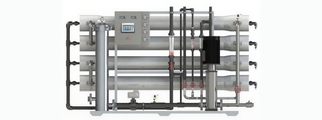
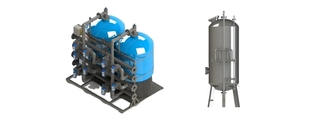
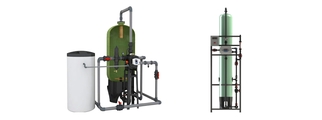
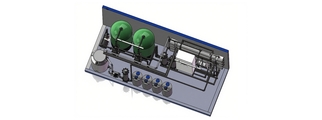
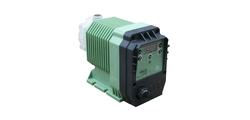
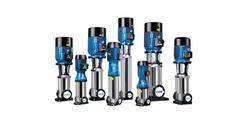
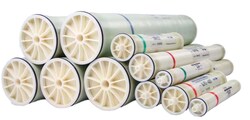
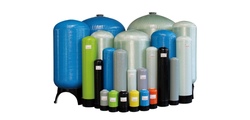
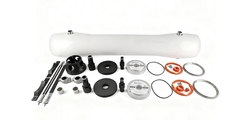
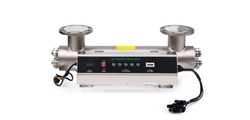
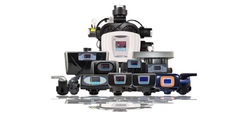
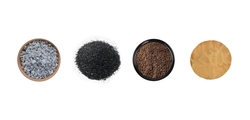
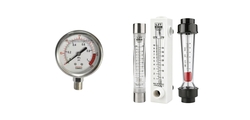
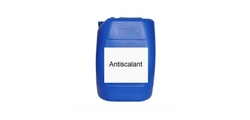
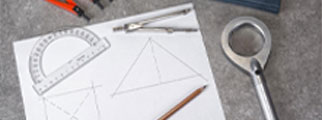



AQUALITEK- Aimee Hoo
AQUALITEK - Aimee Hoo